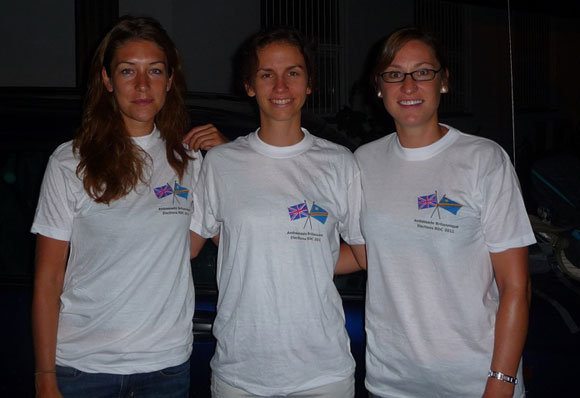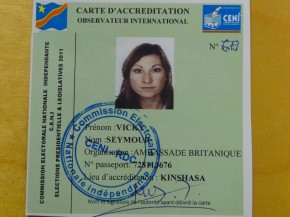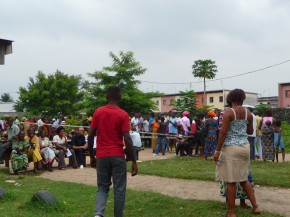"Can you call someone?" I kept being asked, "We want to be able to vote."
I set off at 4:45 this morning - bleary-eyed but as tightly wound with excitement and anticipation as the city of Kinshasa has been throughout the final weekend of the election campaign - to monitor polling in the quartier of Bandal.
By 8am, I had seen one bureau de vote, or polling station, in action. But two-thirds of the 35 polling stations in the voting centre I visited were still closed. The voter lists had not yet turned up.

As I mentioned in my last blog, the election has been an immense logistical challenge. At this voting centre, all the materials - ballot boxes and seals, ballot papers, indelible ink to show who has cast their vote, voting booths - had arrived. But the voter lists weren't there, so the polls could not begin.
People were frustrated and - when the torrential rain began at around 10 am - a little angry. But most of all, they just wanted to make their voice heard in only the second democratic election in over 40 years. When they saw me, with my official badge and my Embassy t-shirt, they clearly hoped my mandate went beyond observing and that I had some power to get the lists in place so they could exercise their constitutional rights.

Finally, at around 8:30 am, the lists arrived. The orderly queues began to jostle for position, as the electoral commission staff showed the empty ballot boxes to the waiting voters before sealing them in front of a room of witnesses. Around 20 representatives of the various political parties, as well as two international observers, crowded the small classroom to bear witness to the legitimacy of the process.
I saw a number of elderly ladies, unable to read or write, but keen to cast their vote. They were told, with the help of educational pictures on the walls, that any mark would do next to the picture of the candidate they wanted to see become the next president.
The list for the deputes, or MPs, was a bit more challenging - for the elderly ladies and for everyone else. The size of a broadsheet newspaper, if you hadn't noted down in advance the number of the candidate you were looking for, you could be spending a large part of the morning with the ballot paper. Some people certainly did take a good 10 or 15 minutes to make their choice, before battling to squeeze the paper into the small slot of the ballot box.

While each person's vote was expected to take between three and five minutes from being checked off the voter list to having their left thumb marked with indelible ink, in the two polling stations I sat in it took between 13 and 14 minutes. With 350 voters attending each polling station, the officials would have to speed the process up over the day to ensure everyone's voice was heard. I’m taking a short breather now to nap before I head back out for the closing of the polls and the counting of the votes.
After a late start for so many polling stations, we'll be looking to make sure they all stay open for the required 11 hours. With the count taking place right after each station closes, it could be a long night.
But if even a little of the Kinois fervour rubs off on me, I'll last the course through a day and night in which a fair amount of disorganisation and an awful lot of rain have done little to dampen the election spirit.

Recent Comments